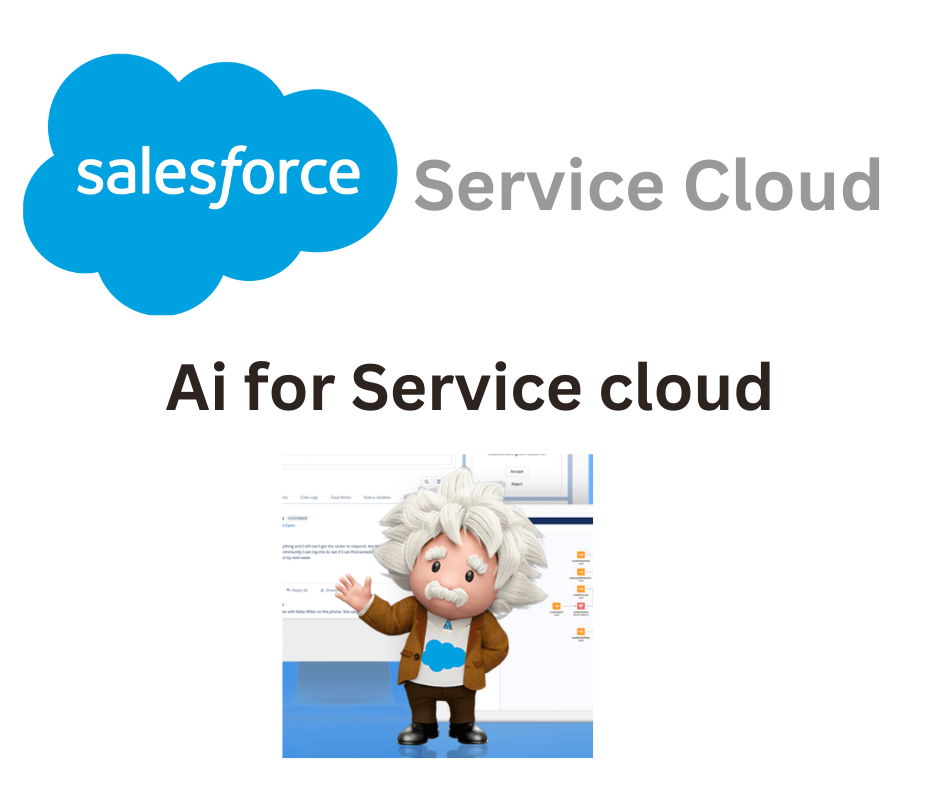Description
The Service Cloud User license in Salesforce provides additional functionality beyond the basic Case Management capabilities available with a Salesforce or Sales Cloud license. Although standard Salesforce and Sales Cloud licenses do offer some Case management features, the Service Cloud User license unlocks a broader set of tools and features specifically designed for customer support, case resolution, and service automation.
Here’s why a Service Cloud User license might be required, even if you already have access to basic Case management with a standard license:
With Service Cloud License
- Access to Service Console App - Omni-channel
- Access to Service Console App - Live Chat
- In order to enable Einstein Chatbot, need at least one Service Cloud User
- In order to access FSL, User needs this licenses assigned first
- CTI Integration can not enabled
- Can not access Knowledge in Service Console
Without Service Cloud License
- User still can access Case Management.
- User will be able to access Lightning Console but can not access Omni-channel, Live Chat, Knowledge One Component etc.
- User will not be able use “Next Best Action” AI feature in Service Cloud.
1. Enhanced Service Console Access
- The Service Console is a specialized, multi-tabbed workspace designed to allow service agents to handle multiple cases, customer interactions, and information sources in a unified, efficient interface.
- Benefits: Provides features like split-view, interaction logs, related record panels, and advanced case management options, allowing agents to work faster and access information from multiple sources in one view.
2. Advanced Case Management and Automation
- While basic Case creation and tracking are available with standard licenses, the Service Cloud license enables more robust features such as Case Milestones and Entitlements.
- Milestones and Entitlements: Track key service milestones (like response or resolution times) and set up entitlements for customers, allowing you to enforce Service Level Agreements (SLAs).
- Omni-Channel Routing: Distributes incoming cases and work items to available agents based on skills, availability, and workload, optimizing resource utilization.
3. Additional Support Channels
- Service Cloud supports a variety of customer service channels, enabling you to provide service across multiple platforms, including:
- Web-to-Case and Email-to-Case.
- Live Chat (Chat & Messaging) and Messaging Channels (SMS, WhatsApp).
- Social Customer Service: Allows agents to monitor and respond to cases created from social media (e.g., Twitter, Facebook).
- These features provide a multi-channel approach to customer support, ensuring seamless communication with customers on their preferred platforms.
4. Knowledge Base and Knowledge Management
- Salesforce Knowledge is only available with the Service Cloud User license. It allows agents to create, manage, and share a searchable library of articles that can be used to resolve cases faster and provide consistent answers.
- Benefits: Reduces time spent on cases, improves customer satisfaction by providing agents and customers with self-service knowledge, and reduces case volume by allowing customers to find answers on their own.
5. Service Analytics and Reporting
- The Service Cloud license unlocks pre-built service reports and dashboards tailored for support metrics, such as agent performance, case resolution times, and customer satisfaction scores.
- Service Analytics: Includes more advanced reporting capabilities specifically for tracking SLAs, response times, agent workload, and service trends over time.
6. Case Escalation and Assignment Rules
- While basic rules can be set up with standard licenses, Service Cloud provides more advanced Case Escalation Rules and Assignment Rules that allow for better handling of high-priority cases.
- Benefits: Automatically escalates cases based on conditions (e.g., pending time, SLA breaches), ensuring urgent issues receive immediate attention, and route cases to the right agents or teams based on complex criteria.
7. Service Contracts and Contract Management
- Service Cloud includes access to Service Contracts, which lets you manage customer support agreements and track entitlements based on individual contracts.
- Benefits: Allows for more accurate tracking of contract terms, automates entitlements, and enforces SLAs based on contract types or customer agreements.
8. Workforce Management and Productivity Tools
- Macro Builder: Enables agents to create and run macros to automate repetitive tasks, such as responding to cases, updating statuses, and logging case details.
- Quick Text: Provides pre-written text that agents can insert into chat and case responses, saving time and ensuring consistent messaging.
9. Service-Specific Automation and Workflow Options
- Service Cloud adds service-specific automation tools and workflow capabilities to help improve agent efficiency, including service-optimized Lightning components and templates.
- Enhanced Service Flow Automation: Configurable flows and automations specifically designed for support scenarios, helping streamline common case processes like case closure, follow-ups, and escalations.
Summary
The Service Cloud User license is essential if your organization requires a comprehensive customer support solution with advanced tools like Omni-Channel, Knowledge Base, Service Console, Milestones, Entitlements, and advanced case routing. While standard licenses provide basic Case management, the Service Cloud license provides the complete set of tools designed to improve agent productivity, maintain high levels of customer satisfaction, and enforce SLAs through automation.
If your support team only needs basic Case management, a standard Salesforce or Sales Cloud license may suffice. However, for a full-service support experience with multi-channel, SLA enforcement, and productivity tools, a Service Cloud User license is typically required.
Please feel free to take a free consultation with Service Cloud experts.

